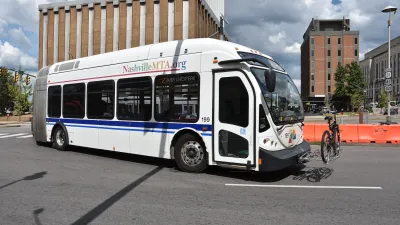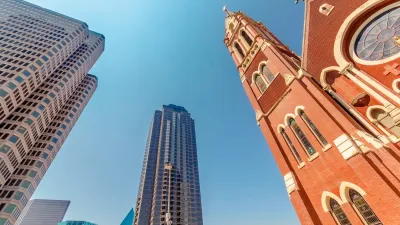The emergent urbanism of informal settlements has posed problems to governments in the Third World, and some are looking to address equality issues by issuing land titles. But one approach skips the titles and focuses on simple zoning.
This post from Old Urbanist explains.
"So far, although titling of properties has led to an average 25 percent increase in land values, the promised access to capital has largely failed to materialize. Further, the awarding of formal titles has often served as an invitation to outside real estate interests to enter the market, futher inflating prices and potentially driving out the very people whose tenure the titling program was purportedly designed to protect. In Mumbai, this process took the form of large apartment towers sprouting in the low-rise Dharavi slum, adding height without necessarily increasing density (in any event population density in these areas appears to be exceptionally high even in the absence of buildings over three stories).
An alternative approach, adopted mainly in the Brazilian city of Recife, has been to provide tenure security not with titles, but by recognition of the community's claim to the land, combined with the implementation of what is perhaps the simplest zoning code to be found anywhere in the world: 1) a two-story height limit; and 2) a maximum lot size of 150 square meters (1,615 square feet). Informal exchanges of property, without deed recording or title transfer, continue unhindered, reducing transaction costs and encouraging an extremely flexible urbanism where boundaries and structures rapidly adapt to changing needs."
FULL STORY: Slums, Titles and the World's Simplest Zoning Code

Alabama: Trump Terminates Settlements for Black Communities Harmed By Raw Sewage
Trump deemed the landmark civil rights agreement “illegal DEI and environmental justice policy.”

Planetizen Federal Action Tracker
A weekly monitor of how Trump’s orders and actions are impacting planners and planning in America.

The 120 Year Old Tiny Home Villages That Sheltered San Francisco’s Earthquake Refugees
More than a century ago, San Francisco mobilized to house thousands of residents displaced by the 1906 earthquake. Could their strategy offer a model for the present?

Ken Jennings Launches Transit Web Series
The Jeopardy champ wants you to ride public transit.

BLM To Rescind Public Lands Rule
The change will downgrade conservation, once again putting federal land at risk for mining and other extractive uses.

Indy Neighborhood Group Builds Temporary Multi-Use Path
Community members, aided in part by funding from the city, repurposed a vehicle lane to create a protected bike and pedestrian path for the summer season.
Urban Design for Planners 1: Software Tools
This six-course series explores essential urban design concepts using open source software and equips planners with the tools they need to participate fully in the urban design process.
Planning for Universal Design
Learn the tools for implementing Universal Design in planning regulations.
Clanton & Associates, Inc.
Jessamine County Fiscal Court
Institute for Housing and Urban Development Studies (IHS)
City of Grandview
Harvard GSD Executive Education
Toledo-Lucas County Plan Commissions
Salt Lake City
NYU Wagner Graduate School of Public Service




























